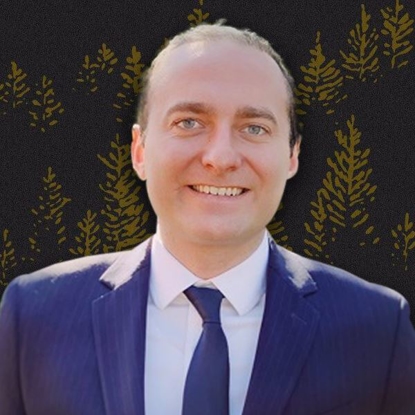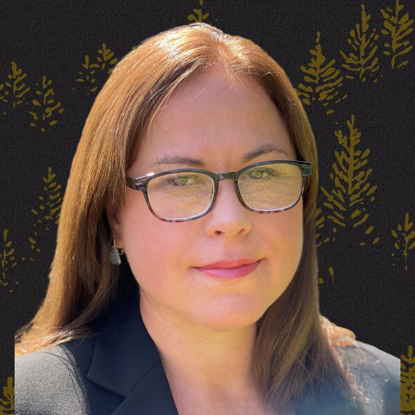
Tualatin Estate Planning Lawyers
Legal Services Tailored to Your Needs
Planning for the future is important, and an estate plan can be one of the most powerful tools in effectively protecting your loved ones, your assets, and your hard-earned legacy. Creating a sound estate plan involves several steps, but the process doesn’t have to be daunting.
With Pacific Cascade Legal, you can find creative solutions tailored to your unique goals. Our Tualatin estate planning lawyers have extensive experience helping clients throughout Washington County with all types of estate planning needs. We understand that every situation is different, which is why we take the time to learn your unique concerns. Then, we offer personalized advice and creative strategies to achieve your goals.
Contact us today to learn more, including how we can help you get started with your estate plan. Call or submit a secure contact form to get started.
Estate Planning Basics
Estate planning is a comprehensive process that involves the utilization of a wide range of legal tools and documents to develop a plan that prepares for potential future events, anticipated or unforeseen. It is worth noting that even in considering what will happen after one's passing, an estate plan can address various contingencies.
One thing to keep in mind is that each estate plan must be tailored to the person creating it since everyone's situation is different. Our team of estate planning attorneys understands this and can work diligently to design a customized plan that suits your particular circumstances. Our comprehensive approach considers every aspect of your estate, including your assets, beneficiaries, and medical treatment preferences in case of incapacitation. By evaluating each element of your estate planning, we can work to ensure that your interests and the interests of your loved ones are well protected.
Why Estate Planning Matters
Estate planning is an important part of managing your finances and ensuring that your assets are distributed according to your wishes after you pass away. Whether you have a small or large estate, it's essential to create a plan that outlines how your assets should be handled when you're no longer around. Estate planning can help protect the interests of loved ones, minimize taxes, and ensure that any charitable gifts are properly managed.
Some of the key benefits of estate planning include:
- Paying Off Debts Before Assets Are Distributed: One key benefit of estate planning is that it ensures all debts will be paid off before any remaining funds are distributed. This helps avoid conflicts between family members over who should pay for what bills or debts, as well as avoiding costly probate court proceedings if someone disputes a debt payment.
- Protecting the Financial Interests of Minor Children: If there are minor children involved in the estate distribution process, having an estate plan in place can help make sure they receive their inheritance at the proper age instead of being immediately entitled to everything upon death. You may wish to have your children’s inheritance distributed slowly over time or all at once when your children reach a certain age; estate planning can help you achieve this.
- Minimizing Taxes: Another advantage of creating an estate plan is minimizing taxes on inheritances by taking advantage of federal tax exemptions and credits applicable to certain types of estates and trusts. Our attorneys can help you learn more about minimizing taxes through estate planning; contact Pacific Cascade Legal today to learn more.
- Making Charitable Donations: Estate planning also offers an opportunity for individuals to make sure any charitable donations or gifts are properly distributed according to their wishes. In some cases, a trust can be created that outlines how the funds should be used and who should receive them in the event of the donor's death. This helps make sure that any final wishes are respected and that charities don't suffer a financial loss due to unclear instructions.
Estate planning is essential for anyone with any amount of assets, those with minor children who will inherit property upon their death, and others who wish to protect their loved ones. It provides peace of mind knowing your wishes will be followed by ensuring debts are paid off, reducing or eliminating tax liabilities, and making sure any charitable donations or gifts are distributed according to your wishes. Taking the time to create an estate plan now can help ensure that your final wishes are respected for years to come.
What Is a Will?
A will is a legal document that outlines an individual's wishes regarding the distribution of their assets after death. A will also names an executor, who is responsible for carrying out the instructions in the will and distributing any remaining assets as designated in it.
Through a validly written will, individuals can make sure their property or possessions are allocated to the people they wish to receive them. In addition, wills often appoint guardians over minor children and provide instructions on how their care should be handled if necessary.
What Is a Trust?
A trust is an arrangement in which one person, called a trustee, holds legal title to property for another person, called the beneficiary. The trustee has control over and responsibility for managing the assets of the trust in accordance with its terms and purposes. Trusts are most often used to protect assets and provide ongoing benefits or income to beneficiaries upon the death of a loved one. Trusts can also be used to manage assets for the purpose of providing for a child’s education or for the care of aging parents. Furthermore, trusts can be created to provide tax savings and other financial benefits.
There are several different types of trusts, including:
- Revocable trusts
- Irrevocable trusts
- Special needs trusts
- Charitable trusts
- Asset-protection trusts
Trusts are typically set up by an individual with legal advice from a lawyer or other professional. The terms of the trust are written in a document called a trust instrument. It will describe how and when assets may be distributed to beneficiaries, as well as details such as how assets can be managed during the lifetime of a beneficiary or trustee. The person creating the trust is known as a settlor, grantor, or trustor.
A trustee is responsible for managing the trust's assets and has a fiduciary duty to act in the best interests of the beneficiaries. Trustees can be individuals, professionals such as attorneys or accountants, or financial institutions, such as banks or trust companies. Professional trustees often charge fees for their services.
Other Estate Planning Tools
In addition to creating a last will and testament or establishing a trust, you may wish to utilize the following estate planning tools:
- Advanced health care/medical directives
- Powers of attorney
- Guardianships/conservatorships
- Asset protection planning
No matter your situation or your goals, our team at Pacific Cascade Legal can help you find a solution. Our Tualatin estate planning attorneys are here to answer your questions and provide the personalized guidance you need to plan for your future.
How Our Estate Planning Lawyers Can Help
At Pacific Cascade Legal, we are here to guide you through the estate planning process. We take the time to truly get to know our clients so that we can better serve their needs. Our legal team is prepared to offer personalized counsel and advice tailored to your specific situation, needs, concerns, and goals. We can help you determine the best course of action when it comes to protecting your loved ones, assets, properties, and legacy. We can also help you adjust or modify an existing estate plan, draft new documents, and ensure the validity of your various estate planning elements.
Request a consultation with one of our Tualatin estate planning lawyers today; call or contact us online to get started.
Estate Planning FAQ
Why do I need an estate plan?
Everyone should have an estate plan, even if it only contains a last will and testament. This helps ensure that your loved ones are protected and that your assets are distributed according to your wishes after you pass away. Without an estate plan, your properties and other assets will be subject to intestate succession. This is the process of administering an estate according to state and federal laws, rather than the deceased’s specified wishes.
What is Oregon’s estate tax?
Oregon imposes an estate tax of about 10% to 16% of the total value of the estate on estates worth $1 million or more. In some cases, it may be possible to minimize or even avoid this tax; contact Pacific Cascade Legal to learn more.
Can I avoid probate?
You can take certain steps in estate planning to help your beneficiaries avoid probate or, if not avoid it altogether, minimize the amount of time probate takes. However, the process involves confirming the validity of a will and other estate planning documents, so probate is often mandatory.

-
 About Us
About Us -
 Resources
Resources -
 Video FAQ
Video FAQ














